Taiwan to pick new president as China ramps up threats: ‘choice between war and peace’
KAOHSIUNG, Taiwan – Beijing and Washington, D.C., will be watching closely as Taiwan goes to the polls on Jan. 13 to elect a new president amid rising fears of armed conflict.
“The potential winner could further cement moves toward what could be called ‘de jure Taiwan independence.’ This will significantly increase the possibility of a war between the two sides; a war in which the U.S. will almost certainly be involved in, either proactively or reluctantly,” Taipei’s National Cheng Chi University Professor of Diplomacy Huang Kwei-bo told Fox News Digital.
The frontrunner is the current Vice President William Lai of the Democratic Progressive Party (DPP), which is loathed by Beijing. Once unabashedly pro-Taiwan independence, the DPP has softened its position. Under current President Tsai Ing-wen, a new DPP policy crystalized, with Tsai telling the BBC after her landslide re-election in 2020 that Taiwan had no need to declare independence as “We are an independent country already, and we call ourselves the Republic of China (Taiwan).”
CHINA TELLS TAIWAN TO VOTE ON ‘RIGHT SIDE OF HISTORY’ IN ELECTION THAT COULD DETERMINE CROSS-STRAIT RELATIONS
The 64-year-old Lai has pledged to follow Tsai’s lead if elected and maintain the status quo. That is not good enough for Chinese President Xi Jinping, the all-powerful leader of the People’s Republic of China (PRC), nor the Chinese Communist Party (CPP). They vow to settle for no less than complete capitulation, although they have “generously” offered Taiwan the same deal as Hong Kong, the so-called “one country, two systems” policy.
Hong Kong was promised 50 years of uninterrupted freedoms they enjoyed as a British colony after the handover in 1997, but in 2020, China backtracked, imposed a Draconian National Security Law, and then quickly charged people in the pro-democracy camp with newly-created crimes that carry heavy sentences, including up to life in prison.
Lai’s main opponent for the presidency of Taiwan is New Taipei Mayor Hou Yu-ih of the Kuomintang or Chinese Nationalist Party (KMT). Hou, 66, was once the island’s top police officer and is now the mayor of Taiwan’s most populous city.
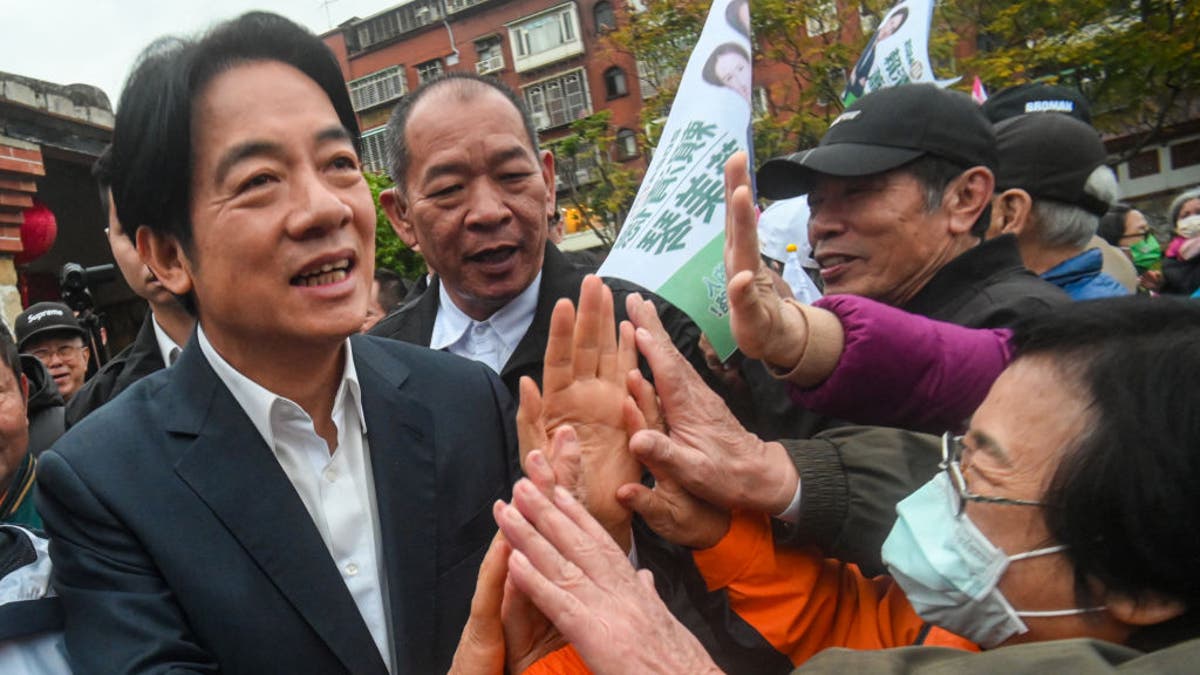
Ho Yu-ih and the KMT accept a controversial concept known as “the 1992 Consensus,” which boils down to the idea that, yes, there is only one China, but each side is free to interpret what this means. The DPP rejects the “1992 Consensus,” and it has never been put to a public vote or codified into law.
In recent years, President Tsai and her party have minimized the use of the formal name, Republic of China. The DPP accepts the ROC as the island’s official title but promotes the name “Taiwan” instead whenever possible. China refuses to even talk to DPP representatives, claiming they are “separatists;” one of the milder pejoratives the Chinese communists is bombastically fond of using. Hou and the KMT deny they are “pro-China,” just as the DPP denies it is “anti-China.” However, Beijing has a preference, with a KMT win being the “lesser of two evils” in its eyes.
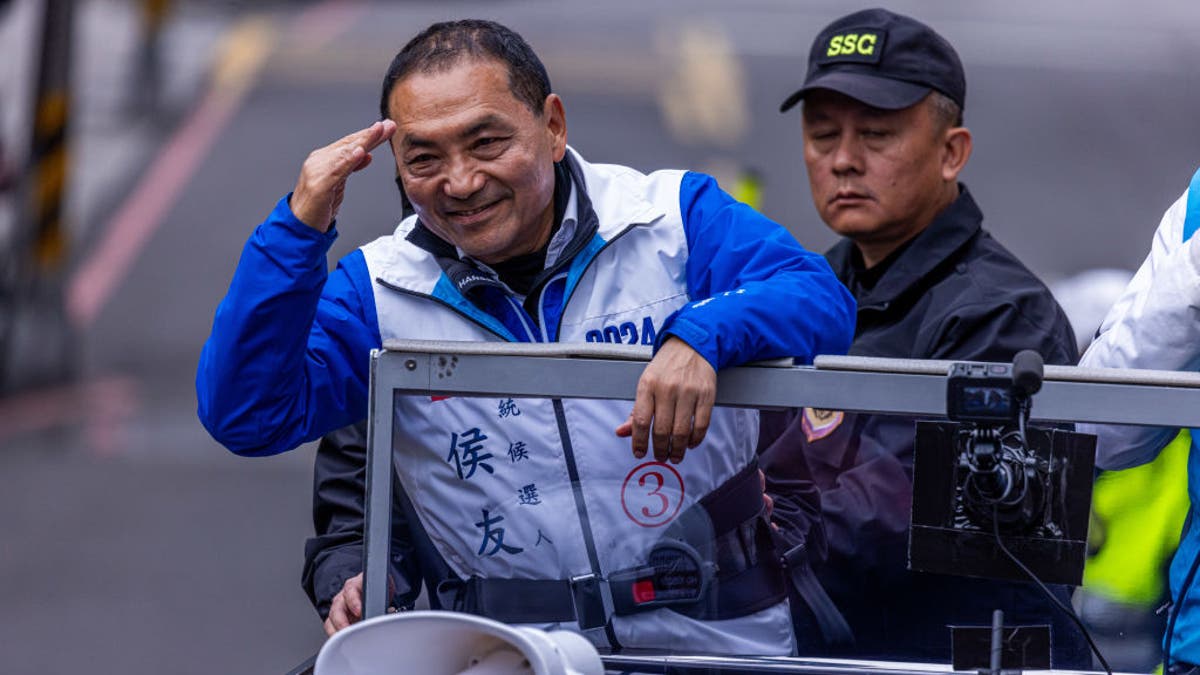
All major parties in Taiwan agree that Taiwan has never been a part of the People’s Republic of China and reject PRC claims of sovereignty over the island. What they disagree on is the way forward. The DPP is pushing for closer official links with the U.S. and her democratic allies, and promoting the use of Taiwan in the name of overseas representative offices that are de facto embassies.
The KMT would return the ROC title to prominence, work to get Chinese tourists returning to Taiwan, enact pacts allowing Chinese companies entry to sectors of Taiwan’s economy from which they are currently banned, and in general, adopt a more conciliatory relationship with Beijing.
CHINESE WAR PLANES, WARSHIPS SPOTTED NEAR TAIWAN AHEAD OF CRUCIAL PRESIDENTIAL ELECTION
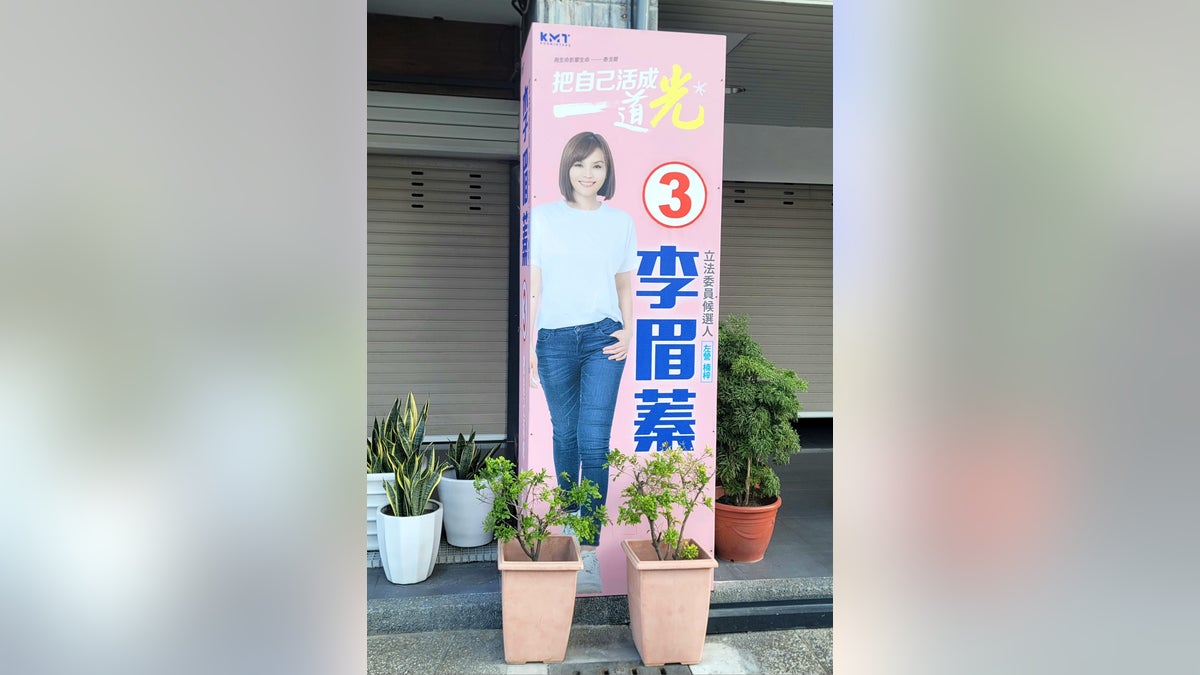
“We can’t let the KMT take power again. The last time they were in office, they attempted to implement pro-China policies that most people in Taiwan do not support. They often prioritize short-term gains at the expense of the long-term survivability of Taiwan as a free and democratic country,” Cherry Tang, a DPP city councilperson representing several districts in southern Taiwan’s largest city, Kaohsiung, which is home to around 2.7 million people, told Fox News Digital.
She continued, “While I have many KMT friends and occasionally collaborate with KMT colleagues, I sincerely disagree with many of their policies. I urge the people of Taiwan to continue supporting the DPP, as we are still on the road to advocating for a pro-Taiwan agenda in the years ahead.”
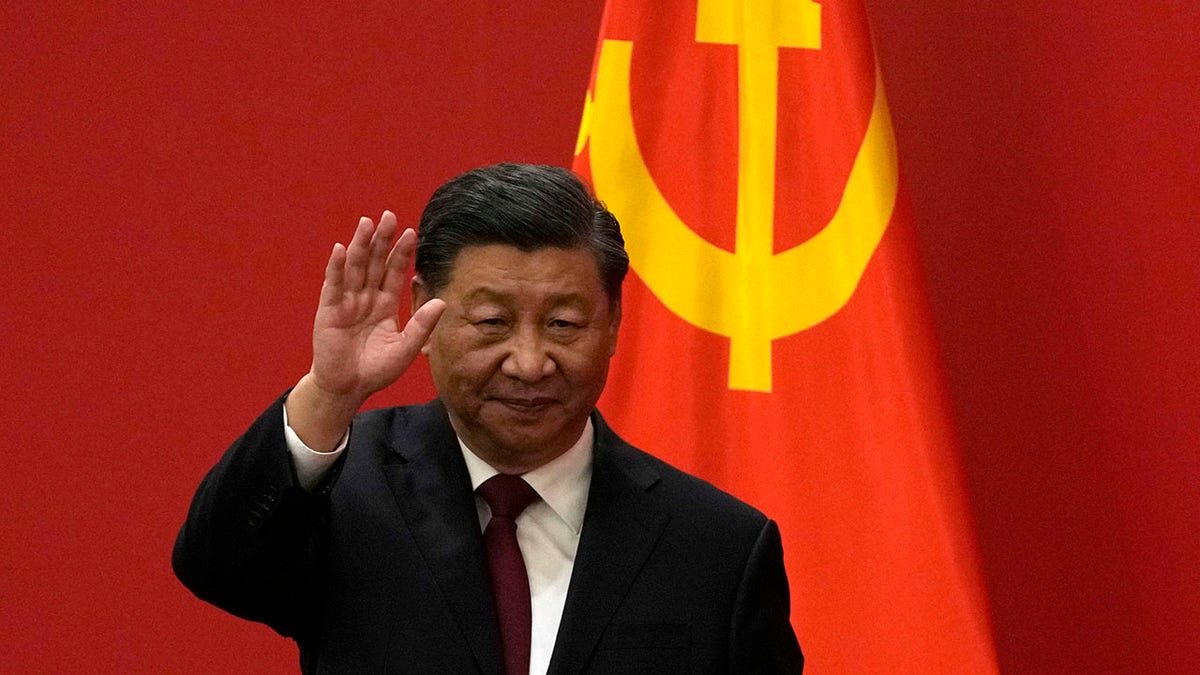
The KMT says voting for them will bring better communication and trade links with China. The value of Taiwan-China trade in 2022 was worth some $205 billion, despite the DPP being the ruling party. However, China has recently warned in clear language that trade will be affected by a 2024 DPP win. Reuters reported Chen Binhua, spokesperson for China’s Taiwan Affairs Office, using near-religious terms at a news briefing in Beijing on Dec. 27, saying “If the DPP authorities … stubbornly adhere to their Taiwan independence position, and refuse to repent, we support the relevant departments taking further measures….”
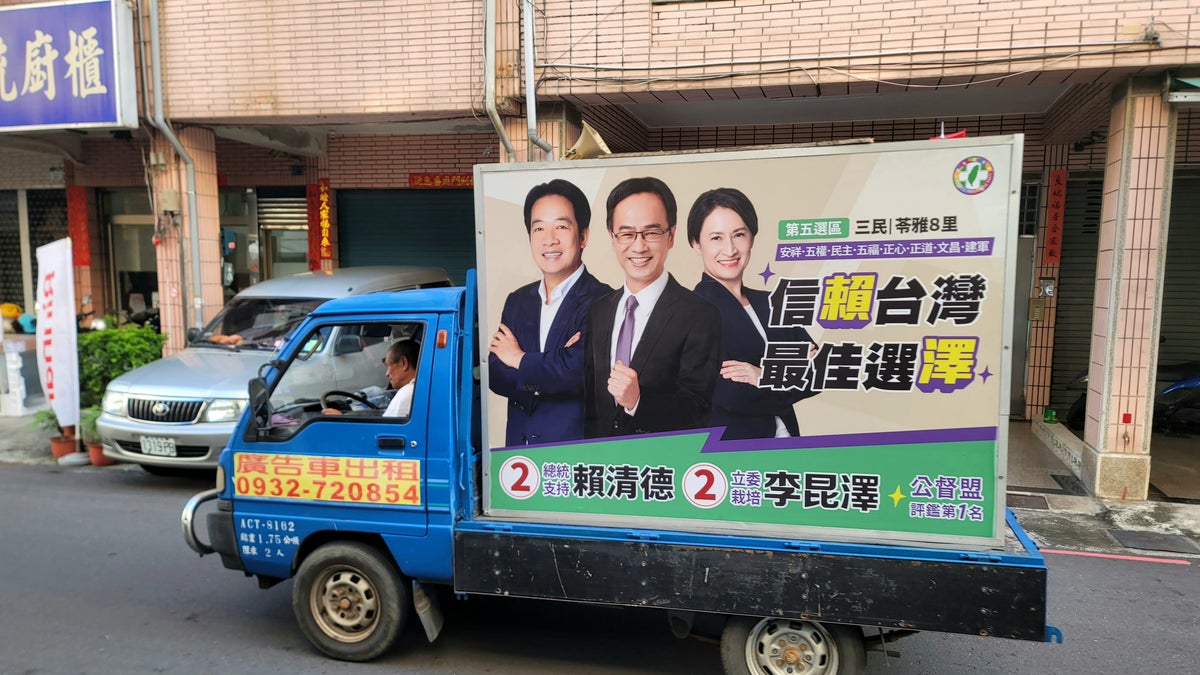
Beijing’s attempts to sway Taiwanese elections go back to Taiwan’s first democratic presidential vote held in 1996, when China conducted pre-election “missile tests,” prompting then-President Clinton to send the U.S. Seventh Fleet into the area.
However, since then, those threats have become more ominous now that Beijing has the realistic ability to make good on them. On Dec. 26, 2023, a near-holy day for the CCP as it marked the 130th birthday of their original demi-god Mao Zedong, Xi said, “The complete reunification of our motherland is an overall trend, a righteous cause, and the common aspiration of the people. Our motherland must be reunified, and it will surely be reunified. [We] firmly oppose anyone using any means to separate Taiwan from China.”
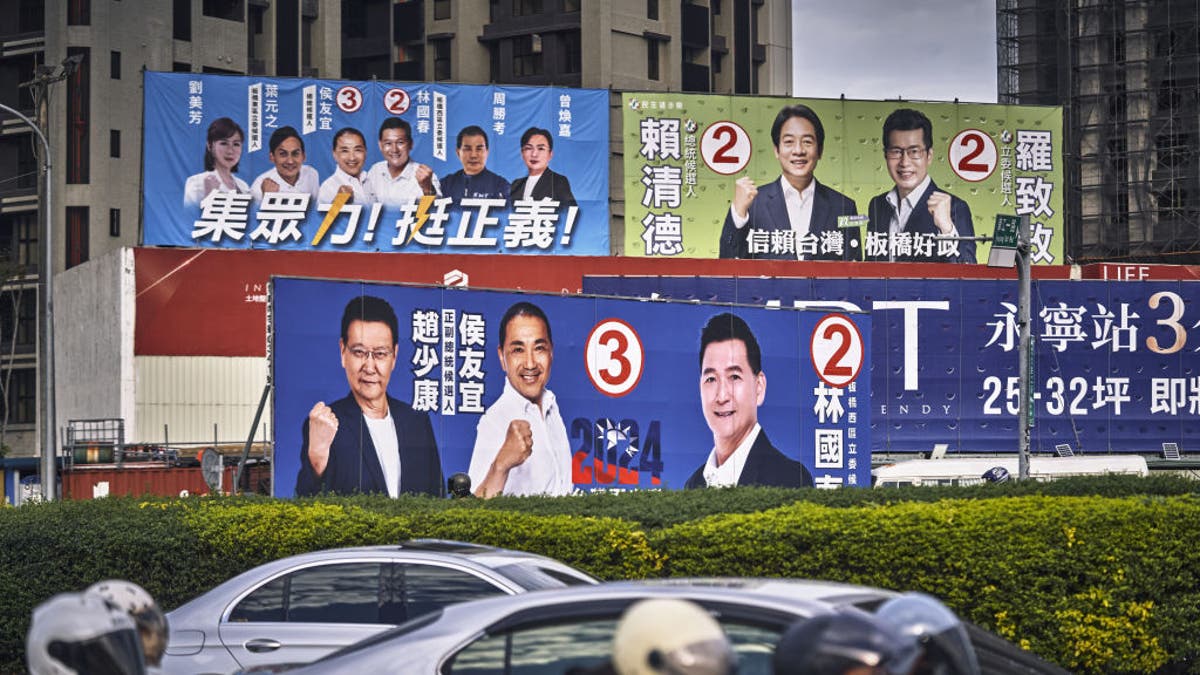
China’s supreme leader spoke that day from the Great Hall of the People in Beijing, but his remarks were not just meant for a domestic audience. Dean Karalekas, editor-at-large of Strategic Vision, an English-language security journal published in Taiwan, told Fox News Digital that while the PRC likes to saber-rattle, their bark is not without a potential bite. “Certain camps in this campaign have framed the election as being a choice between war and peace, and while that might sound like the usual election-year fear-mongering, Beijing has been tacitly undertaking to make good on that claim,” Karalekas said.
‘TRUMP-LIKE’ BILLIONAIRE PRESIDENTIAL CANDIDATE IN TAIWAN PROMISES ’50 YEARS OF PEACE’ WITH CHINA
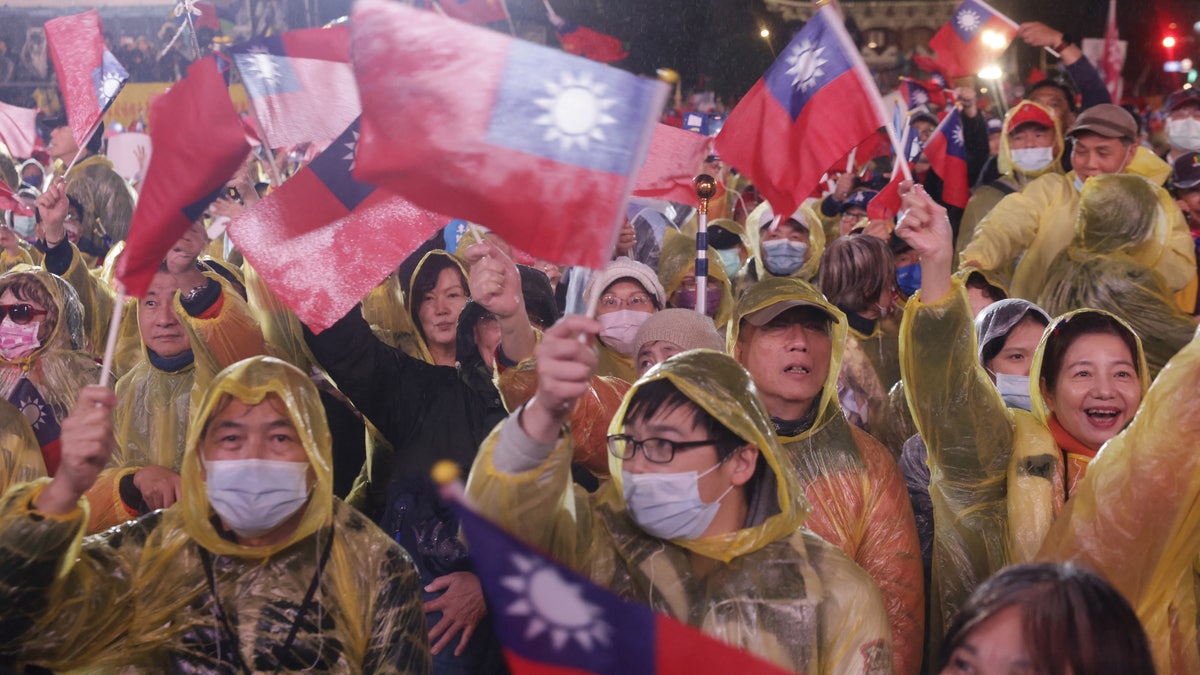
Another resident of Kaohsiung, Chiang, says she would prefer to see a change in the ruling party. Her business, selling jade jewelry, took a severe hit since massive numbers of Chinese tourists stopped coming to Taiwan around the time DPP’s President Tsai took office. Chiang told Fox New Digital, “All I want is peace. Yes, it would be nice for my business if more Chinese tourists came, but more important is peace. My only son is 15. I don’t want him, or any other young people, to have to go to war or experience the hardships that my father and my grandfather endured because of military conflicts.”
The DPP’s William Lai is ahead in the polls but not by an insurmountable margin. On a recent campaign stump, Lai asked what has become of the 104-year-old KMT’s anti-Communist credentials and claimed the KMT’s embrace of “one China” is not only divisive but also potentially “deadly” to Taiwan’s sovereignty. Opposition leader Hou says the other side deliberately misrepresents his positions on China and that Lai and the DPP are the real threat to peace.
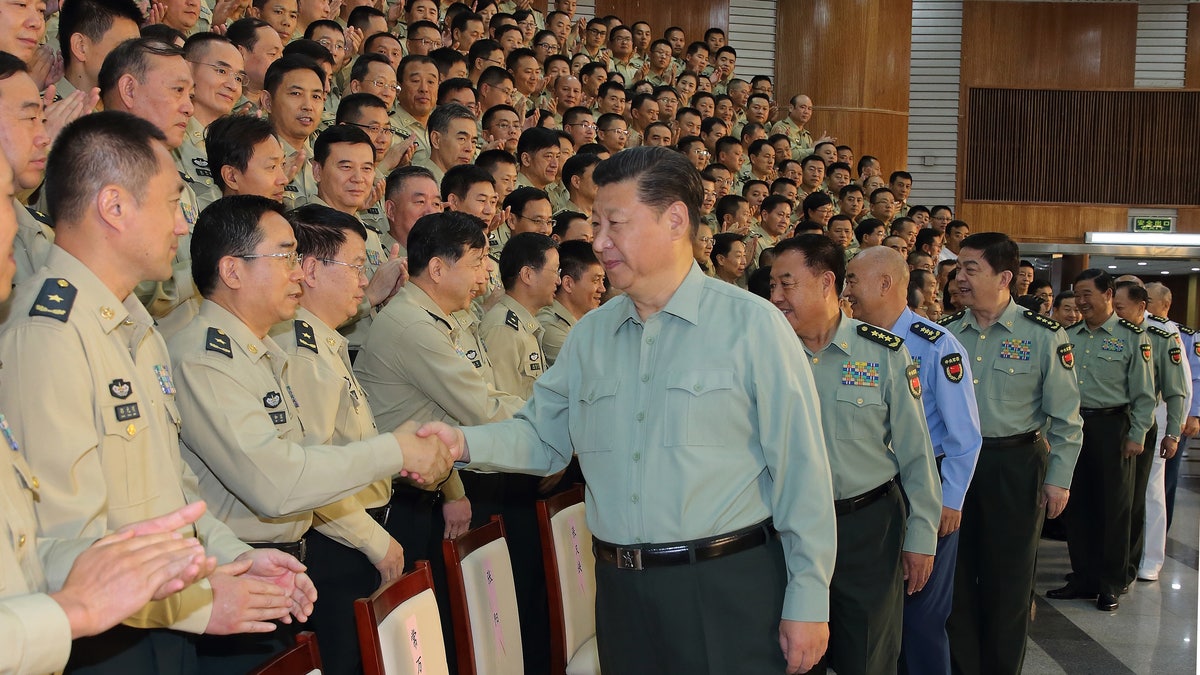
The Chinese leader, who wields more power than any emperor ever did, addressed the communist party on New Year’s Eve and – as usual – brought up the “Taiwan question.” Xi’s comments were similar to previous statements, saying, “The unification of China is a historical inevitability … Compatriots on both sides of the Taiwan Strait should be bound by a common sense of purpose and share in the glory of the rejuvenation of the Chinese nation.”
Not long after, Taiwan’s outgoing President Tsai Ing-wen refuted Xi’s “common sense” comments in a lengthy speech, in which she again said that only the Taiwanese people, using democratic procedures, can determine the future of Taiwan. Tsai also said she has confidence in the wisdom of the people of Taiwan and does not believe they will be swayed by cognitive warfare or manipulation from Beijing.
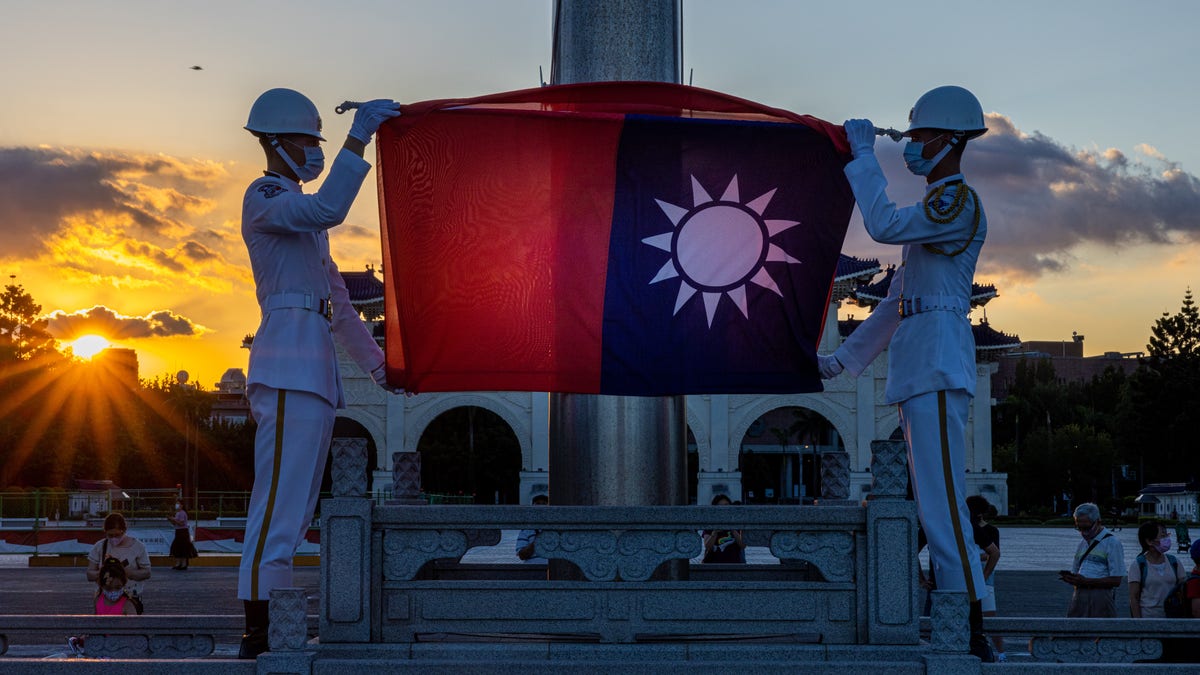
Whichever candidate ends up victorious will continue to face a hostile China. Beijing might prefer the KMT, but the KMT is not open to entertaining “one country, two systems” or any other formula that puts Beijing in charge of Taiwan.
So, democratic Taiwan will continue to be an irritant to Beijing and a potential global conflict flashpoint in 2024 and beyond. Not due to the actions of the citizens of Taiwan, but wholly because of manufactured Chinese “tensions” intended to bully Taiwan and convince the U.S. and other democracies of the world to sit back and allow the island to be swallowed by the Chinese Communist Party.
A third candidate in the race for president is former Taipei City mayor Ko Wen-je from the Taiwan People’s Party, who has been trailing with some 20%. How many of Ko’s supporters stick with him and how many switch to one of the leading candidates could be a deciding factor. Results of the presidential race should be known on the evening of January 13th.
Read the full article Here


